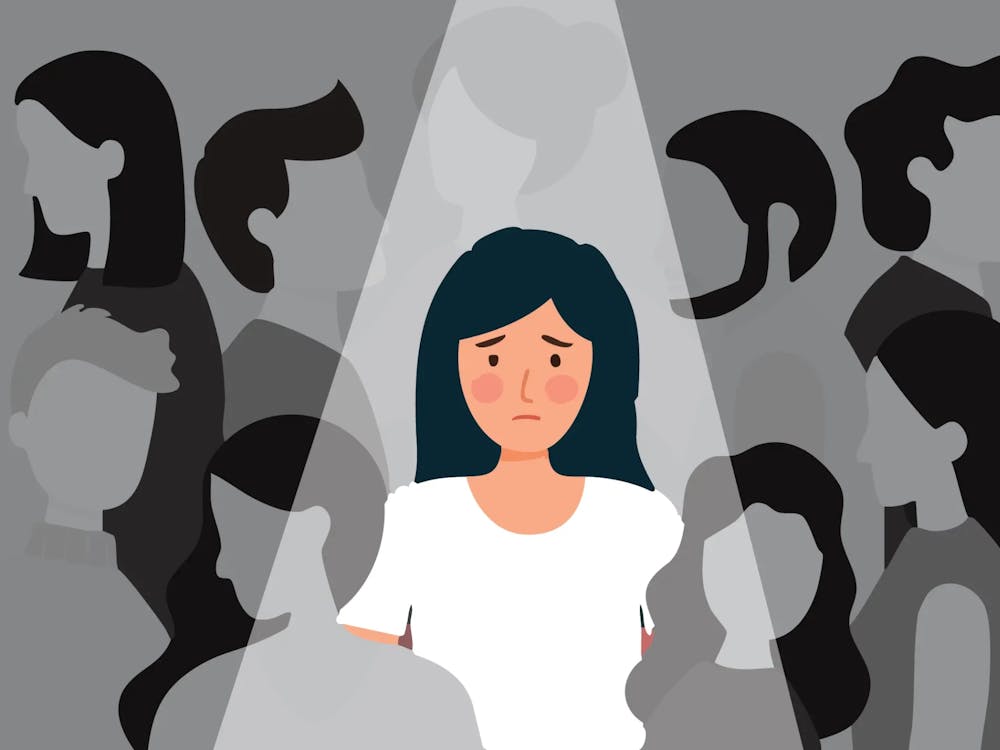Milam's Musings, milambc@miamioh.edu
For something almost everyone has looked at or will look at at some point in their lifetime, porn sure is derided, scorned and misunderstood.
Last Friday, the editorial board of The Miami Student wrote an editorial titled, "Abuse of internet pornography detrimental to daily interactions."
With respect to those behind the piece, it was quite the head-shaker. Porn seems to be one of those issues that can turn those who typically lean left, like progressives and feminists, and make them sound like 1950s evangelical Republicans.
And in fact, my assessment of that flip isn't too far off base since Utah Gov. Gary Herbert, a Republican, signed a piece of legislation Tuesday declaring pornography a "public health hazard."
It's mostly a symbolic way for those in the state to declare their opposition to pornography, citing many of the same reasons the editorial board did in its piece.
For instance, the concern over children's views of sex being damaged by porn-watching and that it objectifies girls.
Senator Todd Weiler, also a Republican, introduced the legislation in January, saying, "I believe today pornography is like tobacco was 70 years ago. I happen to believe that it is addictive and that it is harmful."
I take issue with much of the editorial board piece and the legislation in Utah because it rests on a foundation of fear-mongering and inaccuracies about porn.
The editorial board piece in particular missteps by a) conflating porn addiction with general porn-watching, b) by not offering evidence for its claims, at a micro (these day-to-day interactions) or a macro-level (the overall harm to society).
To be fair, the piece admits it's relying mostly upon anecdote, albeit, it doesn't much indicate the basis for those anecdotes, either.
Who and how many of them are neglecting to go Uptown because of porn's accessibility? What person's daily interactions are impeded by the accessibility of porn while at Miami?
Enjoy what you're reading?
Signup for our newsletter
Most importantly, it's not actually clear that porn addiction is a "thing."
Last year, when researchers Nicole Prause of UCLA and Vaughn Steele of Mind Research Network presented various photographs to 122 men and women, like ones of skydiving, mutilated bodies and sexual images, those who thought they had a porn problem "did not display characteristically addictive brain activity when viewing sexual images."
Which is in contrast to, say, a cocaine addict. When a cocaine addict is shown cocaine-related pictures, such a person would have an intense emotional response recognizable in the brain.
This isn't to say there couldn't be problems associated with porn-watching, but on a neurological level, it doesn't quite meet the standard definition or understanding of an addiction.
In other words, I'm not too persuaded by Stop Procrastinating's survey of 3,000 male college students, as cited by the editorial board, wherein a majority self-reported an addiction to porn.
I'm more inclined to believe the American Psychiatric Association's rejection in 2010 (and again in 2012) of internet and sex addiction being included in the Diagnostic and Statistical Manual of Mental Disorders for lack of sufficient evidence.
Since it's self-reporting, I suspect the fear and shame around watching porn plays more into that self-diagnosis of addiction than do actual problems emanating from porn-watching.
And my suspicions seem to hold, according to a December 2015 study in the journal Psychology of Addictive Behaviors.
Researchers found that perceived addiction to internet pornography predicted psychological distress, like depression and anxiety, more than actual porn use itself.
As for the question about a relationship between porn-viewing and the objectification of women, along with ramped up aggression and violence toward women, I'm not entirely compelled by that argument, either.
The arguments against porn are eerily similar to the arguments against video games, such as making men more violent and aggressive and warping their sense of reality.
I find it odd, however, that at the same time porn and video games became more ubiquitous and "outlandishly easy to come by," violent crime of all kinds declined and continued to decline in the United States.
In fact, Christopher Ferguson in his 2009 paper "Aggression And Violence Behavior" concluded, "Evidence for a causal relationship between exposure to pornography and sexual aggression is slim and may, at certain times, have been exaggerated by politicians, pressure groups and some social scientists."
But what about claims that the porn industry is inherently sexist? After all, among feminists on the left, there's long been a crusade against porn, from the likes of Gloria Steinem most famously.
Tina Horn, a sex worker, dispels such notions, like that of passivity among women in porn.
"If a female porn performer is depicting "passivity," she is playing a role because it's her job to do so. If and when she experiences acute discomfort or exploitation on the job, that is a labor issue that needs to be seriously addressed by the industry," Horn said.
Porn and its ubiquity in our society should not be feared or pushed even further to the margins.
As Horn says, "When we apply matters of morality to matters of taste, the most marginalized peowple get thrown under the bus."
Instead, we should be promoting sex-positivity and the beauty that is human sexuality.
It's antithetical to feminism, bodily autonomy and choice to assume a woman in porn must have been either brainwashed into it, traumatized into it or is currently being exploited within it.
One of the most beautiful and interesting reflections of humans are the varying preferences we have for how we want to be sexuality presented.
Rule 34 is a bit of a punchline now, but it also serves to show the vast diversity of human sexual expression.
Unfortunately, American society, given its Puritanical roots, is quite prudish when it comes to any discussion of sex, sex workers, porn and the like.
Despite, again, that almost everyone with access to the internet has consumed or will consume some porn at some point in their lives.
If we are going to compare porn to something, the proper analogy isn't to tobacco 70 years ago. Rather, it's to marijuana: cheap, accessible and most of us will admit to doing it at some point in our lives, but derision and shame still surround it.
Marijuana's also, largely, still illegal. At least porn isn't because even lawmakers must know how laughable such a prohibitive proposition would be.
The editorial board ends their piece this way, "Relying on porn for sexual pleasure may be easy, but clicking 'X' to close that browser is even easier, and it may very well save your life."
I'm thinking the amount of corpses attributable to porn-viewing habits is similar to those from getting high off of marijuana, which is to say zero.
If we want boys and girls to have a better image of sex and not mythify it, it's imperative to erase the shame around sexual expression rather than foster it with continued anti-porn crusades.




